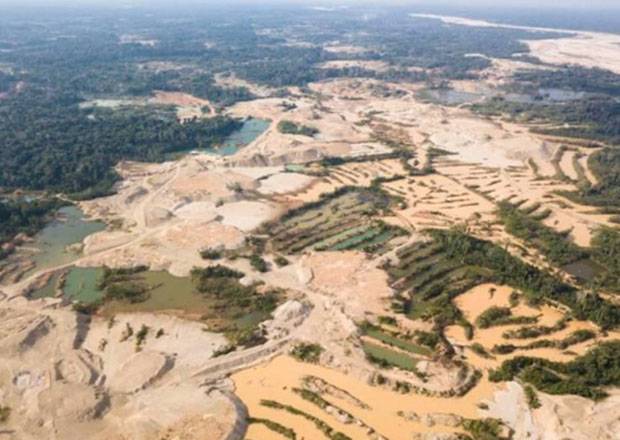Galamsey
in Ghana: A National Crisis Affecting the Environment and Communities
Ghana is rich in natural resources, particularly
gold, and has been a center for gold production since the pre-colonial era.
Small-scale mining was formalized in the early 1980s, with laws aimed at
regulating the industry. However, over time, illegal miners began bypassing
these regulations, leading to the proliferation of galamsey operations. The
boom in gold prices over the past decades has only fueled this rush, with both
local and foreign actors involved.
The
Environmental Impact
Galamsey has led to catastrophic environmental
consequences. Rivers like the Pra, Ankobra, and Birim, once vital sources of
water for both drinking and agriculture, are now polluted with toxic chemicals,
including mercury and cyanide, which are commonly used in illegal mining
operations. The forest cover in mining areas has also been decimated,
contributing to deforestation and a loss of biodiversity.
Soil erosion, land degradation, and the destruction
of farmlands are widespread. For a country that relies heavily on agriculture,
these environmental impacts have serious economic consequences, threatening
food security and rural livelihoods.
Social and
Economic Implications
While some individuals benefit financially from
galamsey, many more suffer its adverse effects. Entire communities have been
displaced as illegal miners take over lands, often without the consent of
landowners. The miners themselves, often young people lured by the promise of
quick wealth, work under dangerous conditions with little to no safety
regulations. Fatal accidents, mine collapses, and exposure to harmful chemicals
are common, making galamsey one of the most hazardous jobs in Ghana.
Additionally, the influx of foreign nationals,
particularly from China, has added another layer of complexity. Their
involvement in galamsey operations has fueled tensions, with accusations of
exploitation and the displacement of local miners.
Government
Response and Challenges
The Ghanaian government has launched several
initiatives to tackle the galamsey menace. In 2017, a national task force,
Operation Vanguard, was deployed to curb illegal mining activities. There have
also been calls to provide alternative livelihoods for illegal miners, as well
as efforts to formalize small-scale mining through licensing and regulation.
Despite these efforts, galamsey persists, largely
due to corruption, inadequate enforcement, and the high demand for gold. Some
local chiefs and politicians have been implicated in supporting illegal mining
operations, while miners, driven by poverty, continue to risk their lives in
these dangerous and illegal activities.
The Way
Forward
Solving the galamsey crisis in Ghana requires a
multifaceted approach. Stronger enforcement of mining regulations, coupled with
the prosecution of those involved in illegal activities, is crucial. The
government must also invest in creating sustainable economic opportunities for
young people in mining communities, so they are not forced into illegal mining
as their only source of income.
Furthermore, there is a need for more public
awareness campaigns about the environmental and social impacts of galamsey.
Communities need to be empowered to protect their lands and hold local leaders
accountable. Lastly, international cooperation, particularly in curbing the
influx of foreign nationals involved in galamsey, will be critical to long-term
success.
Conclusion
Galamsey poses a significant threat to Ghana’s
environment, public health, and social fabric. While the problem is deeply
rooted in socio-economic factors, a combination of strong governance, community
involvement, and sustainable alternatives can help combat this crisis. With
Ghana’s rich cultural and natural heritage at stake, the time to act decisively
is now.



No comments yet
Be the first to share your thoughts!